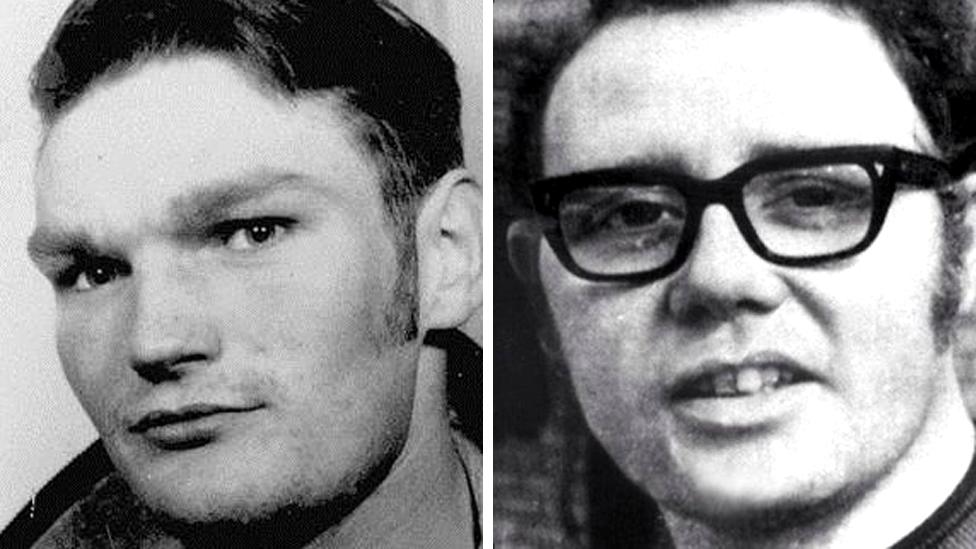Bloody Sunday: Commons speaker says Eastwood 'broke no rules'
- Published
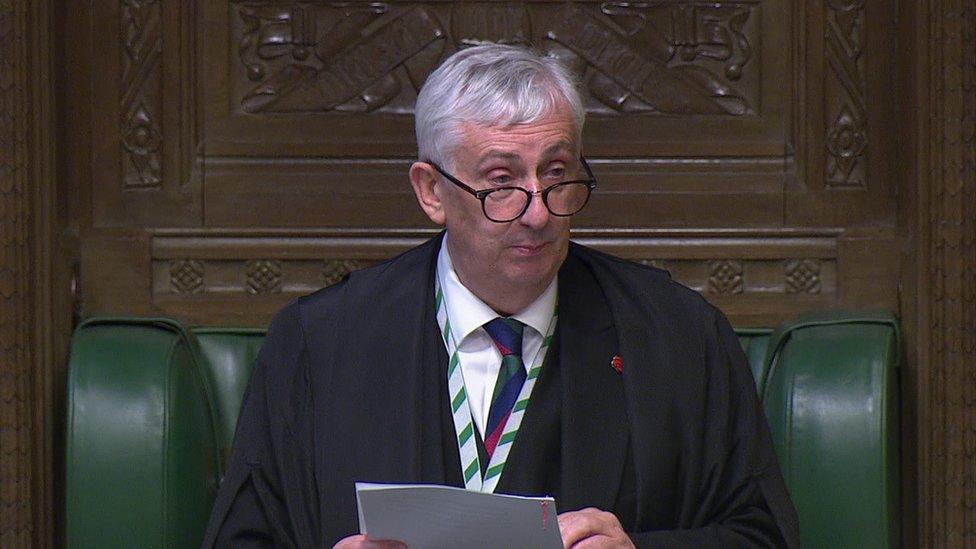
The speaker of the House of Commons has defended the right of Colum Eastwood to identify a former soldier facing two murder charges over his actions on Bloody Sunday.
The Foyle MP named Soldier F during a debate in the House of Commons on the Armed Forces Bill on Tuesday afternoon.
The former paratrooper is also facing five attempted murder charges.
He had been granted anonymity by the judge hearing the case.
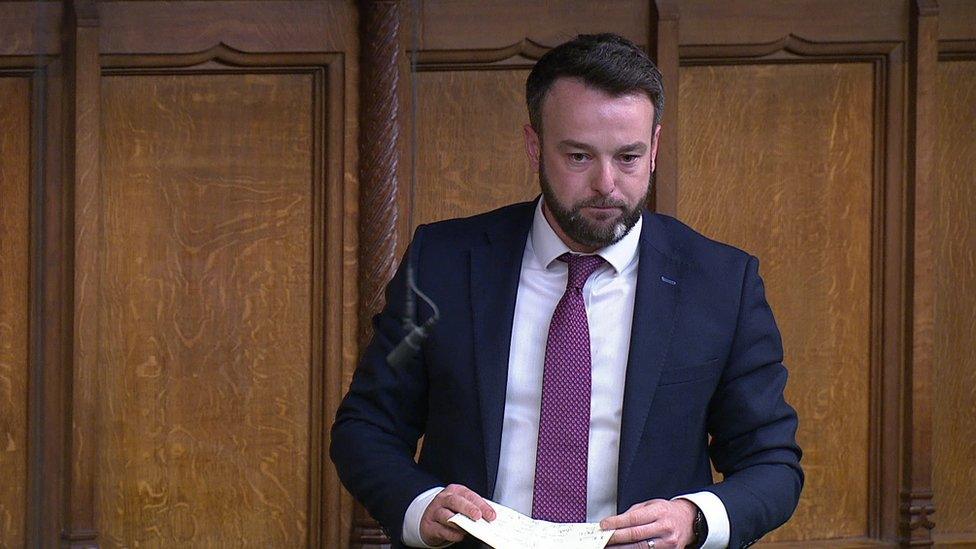
Colum Eastwood revealed the identity of Soldier F
Speaking on Wednesday in the Commons, Speaker Sir Lindsay Hoyle said Mr Eastwood "broke no rules".
"As members of this house, we enjoy freedom of speech," said Sir Lindsay.
"A member may state whatever they think fit in debate and that the member is protected by parliamentary privilege."
However, Sir Lindsay told MPs that freedom of speech "must be used responsibly".
"Privilege places significant responsibility on parliamentarians to exercise it in the public interest and presumptions should be that court orders are respected in parliament," he said.
"When a member does not comply with one, he or she can demonstrate that it is in the public interest.
"It is for others to judge whether or not the actions of the honourable member for Foyle were indeed in the public interest."
After naming Soldier F on Tuesday, the Mr Eastwood said: "For 50 years he has been granted anonymity and now the government want to grant him an amnesty.
"No one involved in murder during the Troubles should be granted an amnesty."
The BBC is not naming Soldier F for legal reasons.
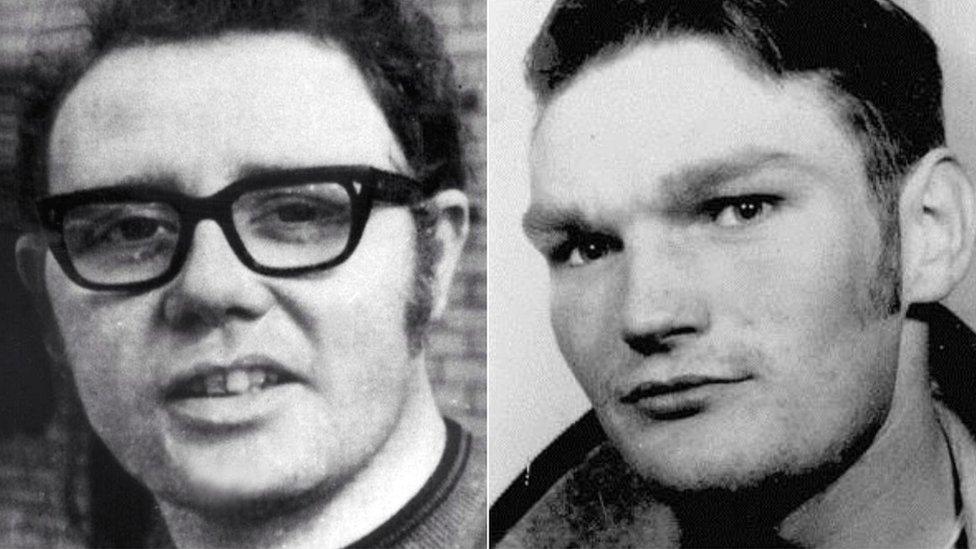
Soldier F is accused of the murders of William McKinney (left) and James Wray
Soldier F is facing two murder charges over the killings of William McKinney and James Wray and five attempted murder charges for his actions on Bloody Sunday in 1972 when 13 people were shot dead by paratroopers.
He was granted anonymity after the judge hearing the case concluded "a real risk does exist" to the life of Soldier F and he is right to "feel genuine fear".
But the Public Prosecution Service (PPS) said it planned to withdraw the charges after reviewing the case and decided statements were no longer admissible evidence.
The case was due to be formally dismissed in court last week, but a legal challenge by a brother of William McKinney forced an adjournment.
Leave has been granted for a judicial review into the PPS's decision not to proceed with the prosecution.
The case is due to be heard in September.
- Published2 November 2018
- Published9 July 2021
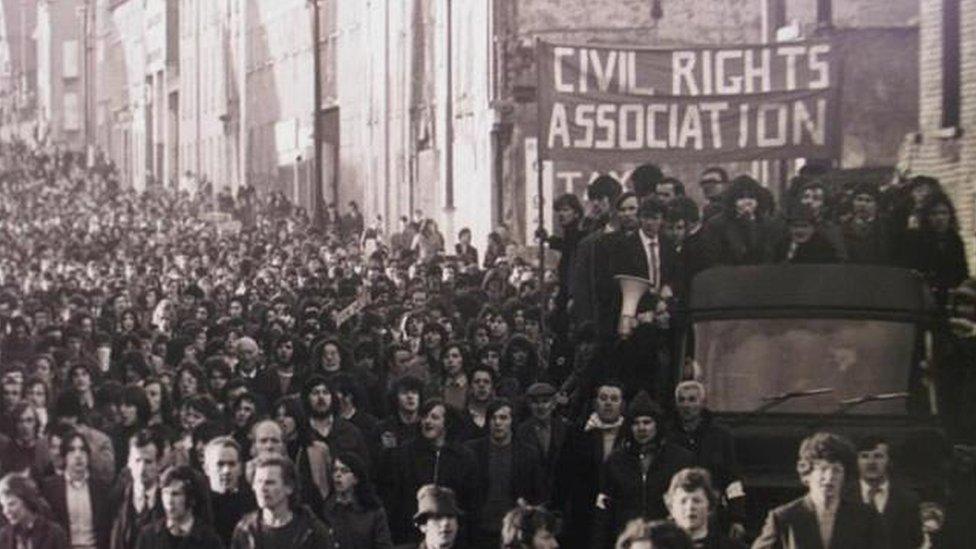
- Published2 July 2021
